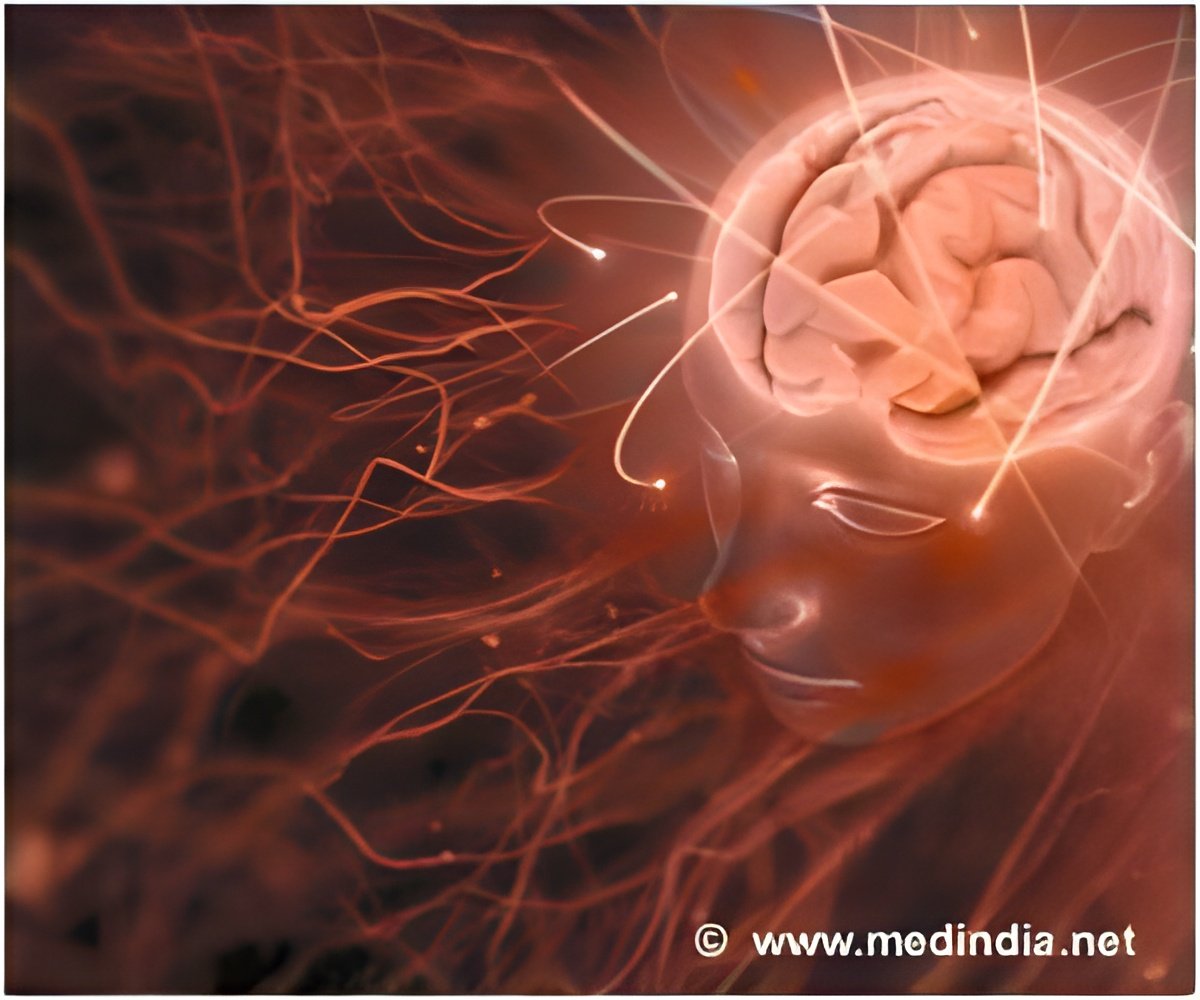Cellular aging is associated with structural changes in the brain, reveals a new study.

‘Cellular aging is linked to structural changes in the brain. A new study highlights that telomeres on human chromosomes change together with brain structure.’





Telomere length is therefore regarded as a marker for the biological age of a person -- in contrast to their chronological age. For two people of the same chronological age, the person with shorter telomeres has an increased risk of developing age-related diseases such as Alzheimer's or cancer, and even a shorter life expectancy.Telomere Lengthening
One key to staying younger longer therefore seems to be related to the question: How do we slow down, stop, or even reverse the shortening of telomeres? Genetics and unhealthy lifestyle are important contributors to telomere shortening, along with psychological stress. Based on this knowledge, researchers have examined how much lifestyle can influence telomere length. Recent studies suggest that telomeres can change faster than previously thought, possibly taking just one to six months of mental or physical training to elongate.
The exciting premise is that telomere lengthening may represent a reversal of biological aging processes. However, it remains unclear if telomere elongation actually reflects any improvement in a person's overall health and aging trajectory.
"To explore whether a short-term change in telomere length, after only a few months, might actually be associated with changes in a person's biological age, we linked it to another biomarker of aging and health: brain structure," explains Lara Puhlmann, now a member of the Research Group 'Social Stress and Family Health' led by Veronika Engert at the Leipzig Max Planck Institute. The project had been initiated by Tania Singer as part of the ReSource Project.
Advertisement
Fast Changes in Biological Aging
Advertisement
If the telomeres changed in length, this was associated with structural changes in the brain. In a period when participants' telomeres lengthened during the study, it was also more likely that their cortex had thickened at the same time. On the other hand, telomere shortening was associated with reductions of grey matter. This association occurred specifically in a brain region called the precuneus, which is a central metabolic and connectional hub.
The above results suggest that even short-term changes in telomere length over just three months might reflect general fluctuations in the body's health- and aging status. Many other questions, however, remain open. "We do not know, for example, which biological mechanism underlies the short-term changes in telomere length", explains the scientist, "or whether the short-term changes really have a longer-term effect on health."
Mental Training
At the same time, the team of researchers investigated whether telomere length could be altered by nine months of mindfulness- and empathy-based mental training, and whether such systematic change in telomere length would also be reflected in cortical thickening or thinning.
Previous data from the ReSource Project, which was supported by the European Research Council (ERC), had already shown that certain regions of the cortex can be thickened by training, depending on the respective mental training contents of three distinct modules, each lasting for three months. The physiological stress response could also be reduced by mental training with social aspects.
In contrast to their earlier work and previous findings from other groups, the team did not find any training effects on telomeres. Future studies will need to continue to address the question of which measures or behaviors most effectively stop or even reverse telomere shortening, and the biological aging process.
Source-Eurekalert















